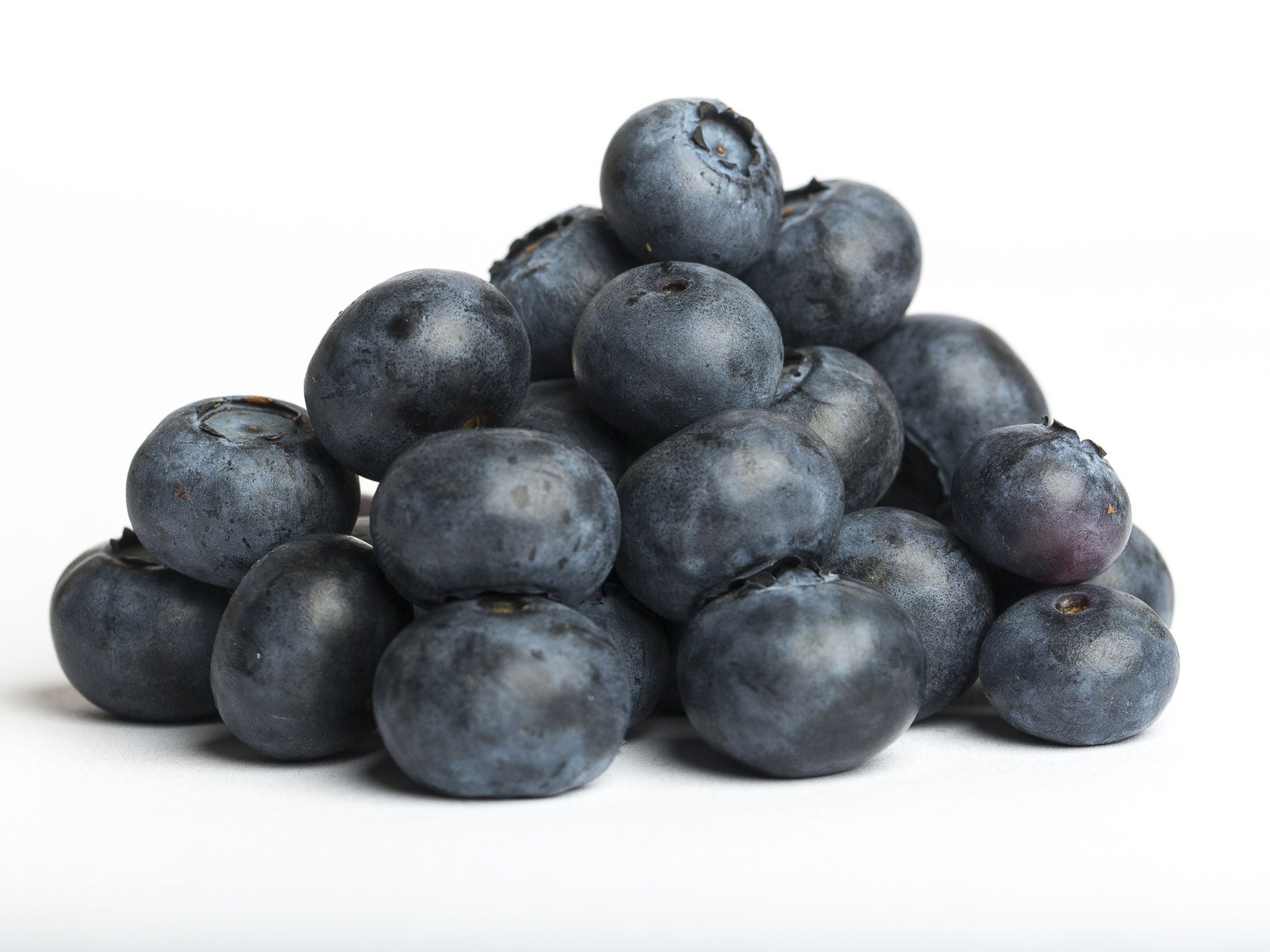Blueberries: can one cup a day lead to a healthier heart?
It's been suggested the 'superfood' could reduce the cardiovascular disease risk

Your support helps us to tell the story
From reproductive rights to climate change to Big Tech, The Independent is on the ground when the story is developing. Whether it's investigating the financials of Elon Musk's pro-Trump PAC or producing our latest documentary, 'The A Word', which shines a light on the American women fighting for reproductive rights, we know how important it is to parse out the facts from the messaging.
At such a critical moment in US history, we need reporters on the ground. Your donation allows us to keep sending journalists to speak to both sides of the story.
The Independent is trusted by Americans across the entire political spectrum. And unlike many other quality news outlets, we choose not to lock Americans out of our reporting and analysis with paywalls. We believe quality journalism should be available to everyone, paid for by those who can afford it.
Your support makes all the difference.A new study has shown that adding a handful of blueberries to your daily diet could decrease the possibility of heart disease. One cup of the fruits every day could reduce blood pressure and stiffening of arteries, which have strong links to heart attacks and strokes.
Researchers from Florida State University blindly and randomly gave a daily dose of blueberry powder or dummy placebo powder to 48 women who were over the age of menopause. They all had early stage high blood pressure or were at risk of developing it in the near future. After eight weeks, the women who received the blueberry powder had significantly lower blood pressure results than before whereas the women on the placebo showed no changes.
"Cardiovascular disease is the leading cause of death in the United States," said Dr Sarah Johnson, lead author of the study. "Once women go through menopause, this puts them at an even greater risk for it. Our findings suggest that the addition of a single food, blueberries, to the diet may mitigate the negative cardiovascular effects that often occur as a result of menopause."
Blueberries have received lots of praise in recent years because of their nutritional value and high levels of antioxidants and vitamin K. There’s no denying that fruit of any sort is good for you, but with every ‘superfood’ there has to be suspicion over whether adding them to your diet will change your life or if it’s all just a fad.
“There’s no real suggestion about what a ‘superfood’ really is or isn’t,” says Dietician Priya Tew. “What we can say is that all fruits and vegetables should be considered ‘superfoods’ because they are all packed full of vitamins, minerals and essential chemicals and they’re the things that people generally make claims about.”
Nevertheless, The North American blue fruits have picked up a lot of interest in particular in the fight against cancer and heart disease because of the antioxidants they contain, which are molecules that halt a chemical process called oxidation. Free radicals are produced in oxidation which are damaging to our cells and can cause cancer. This leads to the belief that more antioxidants in the diet could mean less chance of developing these diseases.
However, there has been little evidence to support this theory, as clinical trials have shown that an increase of antioxidants in the diet has no real effect on the risk of cancer. It has also been suggested that humans can’t absorb the antioxidant compounds from eating blueberries anyway, meaning they wouldn’t have any protective effect from this free-radical damage.
Cancer Research UK points out that no food is a miracle cure. “Eating any one specific food is unlikely to have a major impact on preventing cancer, or any other diseases for that matter.” They warn. “But eating a healthy and varied diet is a great way of helping to reduce your risk.”
One study from 2012 did show that the risk of heart attacks in young and middle-aged women was reduced when they ate three or more portions of blueberries and strawberries a week. 93,600 women were questioned every four years about how much of the fruit they ate in a week for 18 years and there was a 32 per cent drop in heart attacks between the people who ate the least and the most berries.
Unfortunately, it can’t be said that the blueberries were directly responsible for this. The women who ate more of the fruits were found to generally be non-smokers, they had lower intakes of fat and they exercised more – all of which will decrease your risk of having a heart attack. They could even have adopted this healthier lifestyle after being invited to take part in the study.
There are too many other factors to determine whether eating blueberries actually saved people’s lives. Whatever the evidence, no food on its own should start replacing everything else that you eat.
“What can happen is that people get fixed on a certain thing like eating blueberries, but they then eat those more than they eat other types of fruit and vegetables,” warns Priya Tew. “I have blueberries every morning for my breakfast; they’re not a bad thing to be having. But you don’t want people to be only eating blueberries and not be eating other fruits and vegetables.”
The health claims about blueberries being the cure we’ve been looking remain dubious at best. Ultimately, the ‘superfood’ term is simply good marketing and was probably responsible for the rise in quinoa and pomegranate juice sales in 2014. According to dieticians like Tew, no nutritional textbook will contain the term. Of course, blueberries will be better for you than a Mars Bar, but that doesn’t mean they will cure you of all ills.
Join our commenting forum
Join thought-provoking conversations, follow other Independent readers and see their replies
Comments